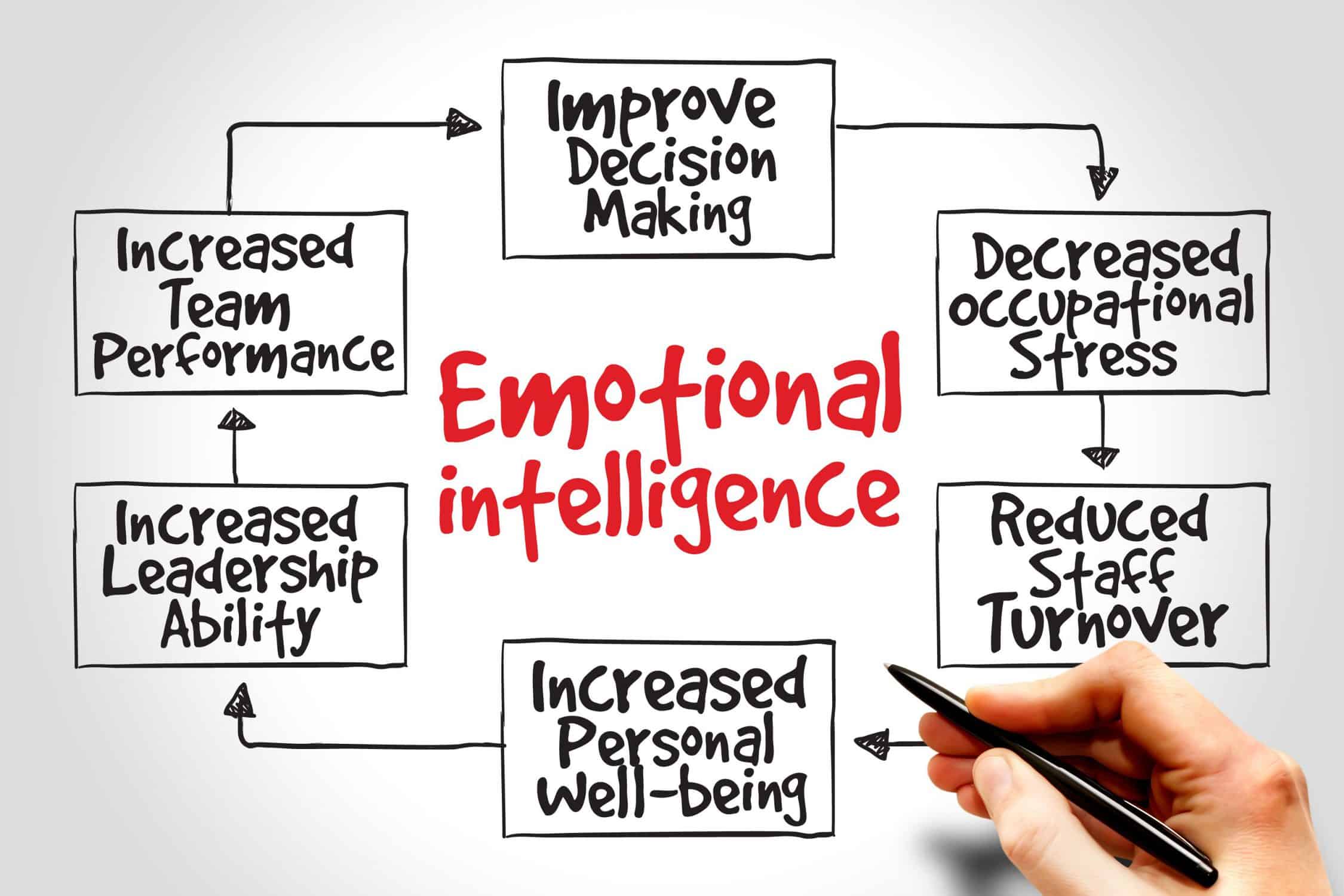Equipping team leads with high emotional intelligence is essential
Daniel Goldman describes emotional intelligence as ‘the capacity for recognising our own feelings and those of others, for motivating ourselves, and for managing emotions in ourselves and in our relationships ‘.
Emotional intelligence is about having self and social awareness, which enables you to manage your emotions even in the most challenging moments. In doing so, you learn to listen and take in a wide range of complex information before you make decisions.
Why build emotional capital?
Research shows that high emotional intelligence is a common characteristic amongst highly effective leaders. In today’s complex business environment, businesses recognise the need to build emotional capital.
In a recent blog, I highlighted the pivotal role of team leads in supporting employee well-being. All too often, middle management feels squeezed, juggling the need to meet business objectives with the need to maintain the welfare of direct reports.
Team leads face additional challenges when managing a remote working environment. Team leads need to be emotionally tuned in to the nuances at work through the virtual communication platforms we all now use. Middle managers play an essential role in creating employee engagement and supporting employee well-being. To do this, they need tools that support employees’ personal growth.
Unlike intellect, emotional intelligence is not fixed and can be strengthened through training and using tools like the Emotional Capital Report (ECRTM). Strong emotional intelligence is essential when leading people in today’s fast-paced business environment.
What are emotions and what impact do they have in managing people?
Emotions are complex sensations that evolve out of our lived experience and make us who we are. Emotions are like a data bank of the reactions, feelings and thoughts we have experienced from birth to this moment.
They often arrive without notice and can make a person do things they never thought they would be capable of. This can be a good thing, and equally, not so good. Emotional reactions that ignore social cues can be problematic. Often, the workplace environment cultivates such behaviours. How then, can you as a team lead, engage and influence positive behaviours in your direct reports if you react emotionally, rushing into decisions while ignoring the input of others?
Through ECR coaching, you can become skilful in managing your emotions to achieve positive outcomes. Strengthening your emotional intelligence helps you understand yourself better and equips you to challenge your default ways of thinking. Such skills enable you to make decisions that serve you and your team well.
Reflect on a recent difficult encounter with your team.• How did you feel? What emotions were present?
• Was your response considered or did you react emotionally? |
How to build your emotional intelligence
Building your emotional capital enables you to understand your team, communicate straightforwardly and navigate difficult decisions. A core element of emotional intelligence involves tuning in to the internal self. Noticing your thoughts and emotions and channelling them towards an effective outcome. People with high emotional intelligence navigate challenging environments in tandem with building a collaborative work culture.
The ECRTM is an excellent tool that supports individuals in understanding their emotional intelligence (EI) competencies by providing a framework with which to explore and build core skills that deepen EI. The tool measures emotional intelligence under ten key competencies. Competencies are characteristics that enable you to better understand yourself and to grasp the emotional dimension of a situation. This wonderful tool as a result, explores your ability to adapt to and embrace change, which is a necessity in today’s current climate.
Good health and emotional intelligence
A study published in the scientific journal Personality and Individual Difference found a positive correlation between high emotional intelligence and good health. Growing numbers of organisations, acknowledge that corporate wellness is integral to building an engaging and collaborative work culture.
The current climate is placing extra challenges on people managers to get the job done and maintain employee wellbeing. Complex work environments require leaders to be tuned into the complexities of the business environment. As a result, Team leads with strong emotional intelligence, are perceptive about the extra stresses people are experiencing during the lockdowns. They can have conversations beyond the scope of work. They connect, they ask the right questions and they listen.
These behaviours create openness, build trust and engage employees. A strong team leader encourages staff to speak up and challenge decisions. It is in such a space that innovation flourishes and employees generate great ideas.
Emotional intelligence encourages people to respect and cultivate a safe psychological space for individuals to understand themselves better, lean on their strengths and address their weaknesses. Building emotional capital encourages healthy behaviours that support corporate wellness.
What next?
As we emerge from the lockdown phase, we know that managing the new norms such as hybrid working arrangements, building collaboration and maintaining employee well-being will continue to be a challenge the workplace. Now is the time to start equipping team leads with knowledge and skills in the new ways of working. Micromanaging is out; building trusting, collaborative relationships is a necessity for managing remote teams.
Developing emotional intelligence amongst team leads provides an excellent foundation to build an agile and empathetic workforce. Emotional intelligence increases resilience and adaptability. It fosters a growth mindset and creates collaborative and trusting workplaces. Creating emotionally intelligent leaders breaks down the old-style approach to management and paves the way for leaders who embrace change.
Using tools like the ECRTM provides a framework for discussions with team leads on the nature of emotional intelligence, their strengths and weaknesses, and personal development strategies to enhance their emotional intelligence capabilities.
For more information about the ECR tool, click here.


